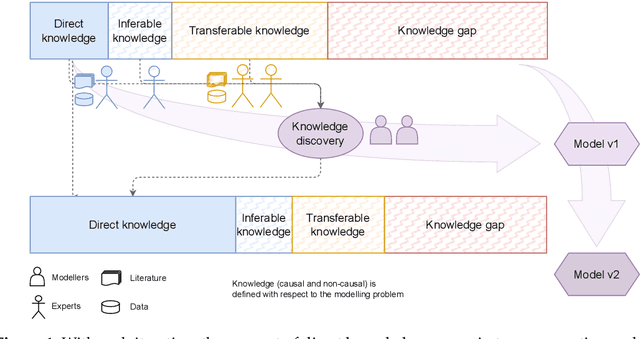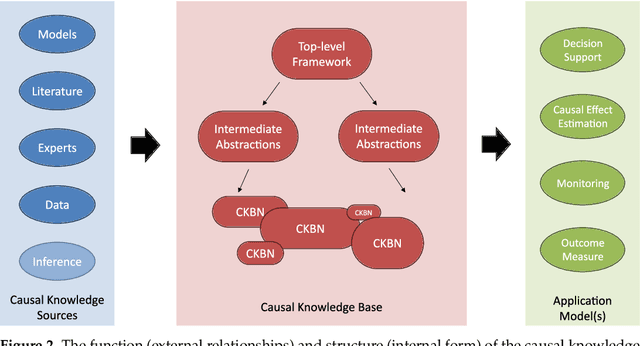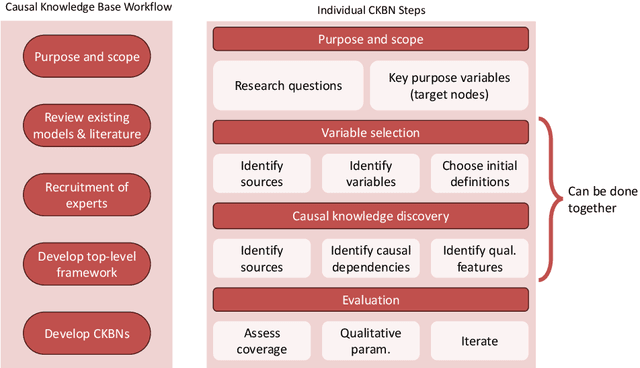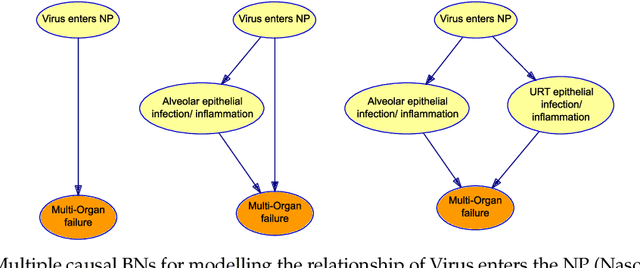Tom Snelling
Causal knowledge engineering: A case study from COVID-19
Mar 21, 2024



Abstract:COVID-19 appeared abruptly in early 2020, requiring a rapid response amid a context of great uncertainty. Good quality data and knowledge was initially lacking, and many early models had to be developed with causal assumptions and estimations built in to supplement limited data, often with no reliable approach for identifying, validating and documenting these causal assumptions. Our team embarked on a knowledge engineering process to develop a causal knowledge base consisting of several causal BNs for diverse aspects of COVID-19. The unique challenges of the setting lead to experiments with the elicitation approach, and what emerged was a knowledge engineering method we call Causal Knowledge Engineering (CKE). The CKE provides a structured approach for building a causal knowledge base that can support the development of a variety of application-specific models. Here we describe the CKE method, and use our COVID-19 work as a case study to provide a detailed discussion and analysis of the method.
 Add to Chrome
Add to Chrome Add to Firefox
Add to Firefox Add to Edge
Add to Edge